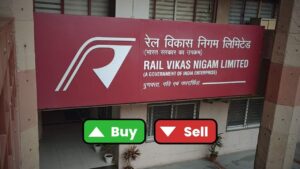The manufacturing sector is changing in terms of precision, scalability and efficiency, this has to be partly because of the combination of robots with automation. In this context, Priyanka Das, a Controls Engineer, is witnessing this change in manufacturing where AI-driven robotics is leading the change.
Das played a crucial role in commissioning (coordination and execution of the final stages of production lines) and in ramping up the production of battery packs, inverters and cell manufacturing for Tesla’s famous models, including the Model 3, Model S, and the highly popular Cybertruck. She also led a project to upgrade production lines for Battery pack manufacturing.
Throughout her career of working on various manufacturing processes, she has had to address design faults, where her recommendation of a solution, reduced the cycle time and increased the production rate. She not only resolved the inefficiencies but also developed a framework for continuous improvement via automation. This led to an improvement in cycle times by three seconds, which increased production rates by 10%. This advancement generated a significant increase in annual profit increment, showing the value of strategic automated manufacturing solutions.
Beyond her direct contribution, she has also authored several papers on automation for eg- Lean Manufacturing Principles: Reducing Cycle Times through Efficient Controls Engineering and The Impact of Automation on Cycle Time Reduction, where she talks about the advantages of applying lean principles in manufacturing and about some practical implications/examples of applying automation in manufacturing, respectively.
Talking about the benefits of AI-integrated robotics in manufacturing, Das points out that it can lead to increased precision and cost efficiency (reduces waste and labour costs), and it increases the opportunity for scalability. It also reduces human exposure to unsafe environments and enables machines to self-improve over time through machine learning, becoming more efficient and reliable.
Further, she also gives us some practical examples of where one can apply automation in supply chain management. For example, robots equipped with AI can perform delicate assembly tasks, such as placing microchips or assembling complex machinery, with minimal errors, as seen in Tesla’s automated car part assembly processes.
Moreover, AI-powered inspection systems improve quality control by detecting defects in real-time, for example: AI-driven robots in electronics manufacturing inspect circuit boards for minute defects, while predictive maintenance solutions use sensor data to anticipate equipment failures, minimizing costly downtimes. AI can also be used in customizable robotic arms, which can adjust according to the requirements, and in optimizing inventory management, order picking, and warehouse navigation. Due to these innovations and to make manufacturing processes easier and more scalable, many manufacturing industries are thinking of including automation in their manufacturing processes.
However, there might be many considerations to take into account while deploying automation, like taking care of the initial installation costs, the environmental impacts, the ethical standards, the threat of hacking, the potential job loss of some people as well as the training required of the employees to embrace the automation technologies.
Keeping these factors in mind, as AI-driven robotics continues to influence the industry in terms of speed and adaptability to meet the ever-growing demands of the customer, the experiences of experts like Priyanka Das will be critical in understanding the potential of automation in the manufacturing sector.












